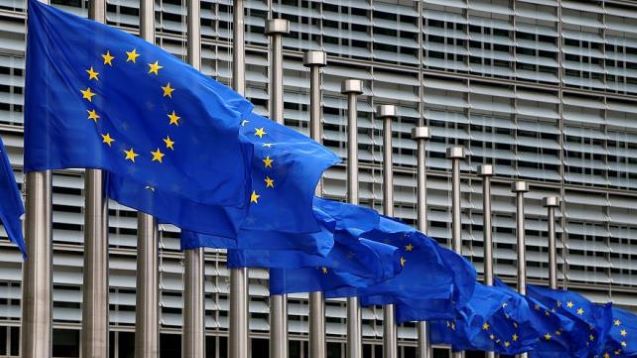The European Union has strongly warned Georgia against passing a controversial “foreign influence” law.
The legislation would require media and non-profit organisations to register as “pursuing the interests of a foreign power” if they receive more than 20% of their funds from abroad, a provision that critics say would be exploited to target and muzzle independent voices.
First proposed and later withdrawn last year by the ruling party, Georgian Dream, a nearly identical version of the law has been tabled again, prompting mass protests.
Despite the growing contestation, the Georgian parliament advanced the law on Wednesday with 83 votes in favour and zero against in a first reading boycotted by the opposition. This led Brussels to issue a warning in unambiguous, stark terms.
“This is a very concerning development and the final adoption of this legislation would negatively impact Georgia’s progress on its EU path. This law is not in line with EU core norms and values,” Josep Borrell, the bloc’s foreign policy chief, and Oliver Várhelyi, the European Commissioner for neighbourhood and enlargement, said in a joint statement.
“Georgia has a vibrant civil society that contributes to the country’s successful progress towards EU membership. The proposed legislation would limit the capacity of civil society and media organisations to operate freely, could limit freedom of expression and unfairly stigmatise organisations that deliver benefits to the citizens of Georgia,” they went on.
“The EU urges Georgia to refrain from adopting legislation that can compromise Georgia’s EU path, a path supported by the overwhelming majority of Georgian citizens.”
The wording was similar to the message sent by Charles Michel, the president of the European Council, on Tuesday evening, in anticipation of the parliamentary vote. Michel underscored the candidate status granted to Georgia last December and said the proposed legislation would derail the accession process, which is yet to formally start.
“Let me be clear: the draft Law on Transparency of Foreign Influence is not consistent with Georgia’s EU aspiration and its accession trajectory and will bring Georgia further away from the EU and not closer,” Michel said on social media.
Georgian President Salome Zourabichvili, who has developed a close working relation with Michel and is a passionate advocate of European integration, has vowed to veto the controversial legislation if it ever arrives at her desk. But her opposition could be eventually overridden by the collection of 76 votes.
Zourabichvili’s term is scheduled to end later this year.
The contentious law has been dubbed the “Russian law” as it has similarities with a bill that the Kremlin introduced a decade ago to silence critical voices across the country. Georgia has for years struggled to contain pro-Russian influence, an issue considered a major roadblock in the country’s long-held ambition to join the EU.
“It is exactly a copy of Putin’s law,” Zourabichvili told the BBC.
“Who has decided that this law should be reintroduced? Is it in Georgia or is it beyond our borders? Is it in Moscow that this decision has been taken? That is the main question about transparency that the Georgian population is asking,” she said.
Although the Georgian Dream party supports EU accession and condemns the invasion of Ukraine, it also defends a “pragmatic” policy towards Russia.
Prime Minister Irakli Kobakhidze, who is the party’s chairman, says the law is needed to ensure a “minimum standard of transparency” among NGOs and complies with “all basic legal principles.” Kobakhidze met earlier this week with the ambassadors from the EU, the US and the UK to discuss the concerns raised by the bill.__EuroNews





